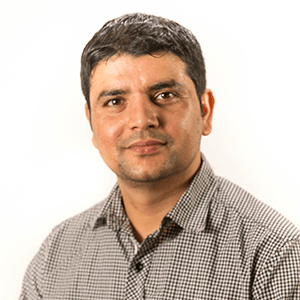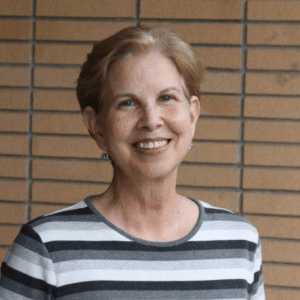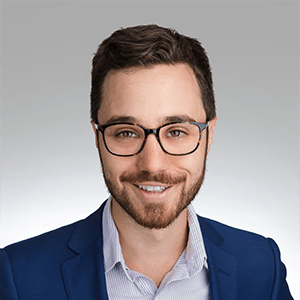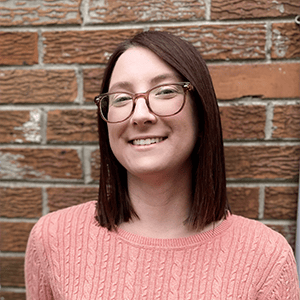SFIS Newsletter – July 2021
Return to the Newsletter Archive

Strengthening the impact of women in STEMM to build a more sustainable future
Women are underrepresented in science, technology, engineering, mathematics or medicine (STEMM) fields, especially in leadership roles. Homeward Bound, a global leadership initiative for women in STEMM, is working to change that. PhD candidate Noa Bruhis has been selected to the program, where she will join a diverse cohort of women from around the world who are working to build a healthier and more sustainable future.

How will we protect American infrastructure from cyberattacks?
Infrastructure includes roads and transportation, telecommunications networks, water and sewage systems, and electricity. And today, much of it is connected to the internet. As the Colonial Pipeline hack and subsequent shutdown reminded us so recently, our infrastructure’s digital connectedness — while bringing benefits like convenience, better monitoring and remote problem-solving — leaves it vulnerable to cyberattacks. Professor Diana Bowman discusses avoiding legal tech lag to protect American infrastructure from cyberattacks.
Research

Associate Professor Lekelia Jenkins published new research on marine catches reported to the Food and Agriculture Organization of the United Nations (FAO). Data from recreational fisheries are often not included in those reports. Jenkins’ research gives a more comprehensive look at all sources of total U.S. marine catches, including recreational fisheries.
Recognition

IGD student Oluwabukola “Bukky” Makinde received an honorable mention in the proposed research category for her poster “The Empowerment Conundrum: Does Investing in Female Farmers affect Gendered-Power Relations at Household Levels in Uganda?” at the 2021 Institute for Social Science Research poster contest.

HSD student Jonathan Klane published “Training in a pandemic: A guide to designing and delivering learning events” in the AIHA’s Synergist, looking at how industrial hygienists and occupational and environmental health and safety professionals get creative with learning in a pandemic world. He has also given several recent talks on risk perceptions and participated in various workshops and panels, including “Designing Safety Training that Sticks” and “EH&S Professional Certifications Roundtable.”

The Nepali Academics in America (NACA) Inaugural Conference featured a presentation from HSD student Rajiv Ghimire on “Resilient irrigated agriculture system in Nepal.” Ghimire also presented “The impact of public deliberation on climate change opinions among U.S. citizens” at the STGlobal Conference. Several SFIS students were part of the organizing committee for the student-led conference, including co-chairs JP Nelson and Nicole Mayberry and organizing committee members Martín Pérez Comisso, Vanya Bisht and Katherine Ball. Biology student Levi Helmand former CSPO Program Specialist Leah Kaplan were also part of the organizing committee.

Senior Coordinator Andra Williams earned a Graduate College Staff Award for Excellence. The awards recognize the prodigious role staff members play in the success of graduate students at ASU. Williams received the Going the Extra Mile award for her contributions to graduate students’ academic success and overall experience.
HSD student Natalie Severy presented “Imaginaries of Humanitarian Design: Material Versus Social Innovation in the Emergency Shelter” at the Architecture Research Centers Consortium (ARCC) conference and “Object and Agency” for Herberger Institute Days. She was also a second author on “Space as situated analysis: Using embodied concepts to engage social dimensions” in Environment, Space and Place, earned the Garcia Hope for Homelessness scholarship and was named housing coordinator for the International Refugee Committee in Phoenix.
Clinical Associate Professor and CSPO Associate Director Mahmud Farooque testified at a U.S. House of Representatives Committee on Science, Space, and Technology hearing on the National Science Foundation (NSF) for Future Act. His testimony on his support for the act focused on the role of public engagement in science.
Professor of Practice Brian David Johnson was profiled by Forbes in their influential voices column, exploring the future of work. Johnson was also the keynote at the WORKTECH “Explore New Innovations Shaping The Future of Work” conference, led an interactive session at the RSA Conference 2021 and was part of a virtual book tour appearance in conversation with activist and author Cory Doctorow.
Associate Professor Jameson Wetmore gave a talk to the OECD Working Party on Bio-, Nano- & Converging Technologies. He spoke about the lessons he has learned at the Center for Nanotechnology in Society and the National Nanotechnology Coordinated Infrastructure to help them further the OECD’s goal of enabling societal deliberation about neuroscience around the world.
The NSF International Research Experiences for Students (IRES) proposal “Nature-based solutions for Resilient Cities in Latin America,” co-led by Assistant Professor Marta Berbes, Lecturer Mathieu Feagan, School of Life Sciences Regents Professor Nancy Grimm and Barnard College Assistant Professor Elizabeth Cook, has been recommended for funding. Berbes was also awarded a Healthy Urban Environment grant. The grant will be used to create an art installation that displays air quality data in South Phoenix and will serve as a vehicle for starting conversations around health and environmental justice.
Professor Bob Cook-Deegan participated in the “Warp Speed Science” panel at the advocacy conference for the National Breast Cancer Coalition. The panel discussed how the global community came together to develop and disseminate a COVID-19 vaccine and how lessons learned from that process could be applied to cancer and other chronic diseases.
Assistant Professor Timiebi Aganaba-Jeanty published a piece in The Conversation on the topic of space junk. “If a satellite falls on your house, space law protects you – but there are no legal penalties for leaving junk in orbit” looked at the laws around space debris and what would happen if a piece caused damage or injury.
Professor Katina Michael and Interim SFIS Director Kathleen Vogel led the workshop “Environmental Enablers for AI Challenges in Cybersecurity,” organized by the Alan Turing Institute (UK), ASU and the National Cybersecurity Centre (UK). PIT students Dina Carpenter-Graffy, Lyric Peate, and Rahul Suresh were scribes for the workshop. Gary Marchant served as a keynote speaker for the workshop. Micheal has also given several recent presentations and keynotes, including “Cloud Computing Data Breaches: US Regulation,” “Tagging Everything: The Positive and Negative Social and Environmental Impacts,” and “Inclusive Design and Inclusivity.” She was also the host of the Human(e) Tech Design Studio 1.
Alumni

Global Technology and Development alumnus Ryan Treisman was named to the Sun Devil 100 class of 2021. The Sun Devil 100 celebrates the achievements of ASU alumni who own or lead successful, innovative businesses. Treisman is a partner and CTO at the information technology company Adopt Technologies.

MSTP alumna Jenna Robinson was recently appointed to the Office of the Chief Financial Officer at NASA as a program analyst. The appointment is through the Presidential Management Fellowship program, a prestigious, two-year training and leadership development program for outstanding graduate students.
Events
July 15 – CGF Alumni Event: Special Screening of “Unbreathable – The Fight for Healthy Air”
Publications
Timiebi Aganaba-Jeanty
If a satellite falls on your house, space law protects you – but there are no legal penalties for leaving junk in orbit
The Conversation
May 17, 2021
Malka Older
What We Believe About Our Institutions
The New York Times
May 19, 2021
Elisabeth Graffy
Removing Carbon From the Atmosphere Must Be Part of Climate Change Policy
Issues in Science and Technology
June 10, 2021
Mary Jane Parmentier
Acceso universal: más allá de la tecnología
El Universal
June 26, 2021
Lekelia Jenkins
Reconstructing historical baseline catches along Highway 101: U.S. West Coast marine fisheries, 1950–2017
ScienceDirect
July 2021
Heather Ross
US Immigration Policies Pose Threat to Health Security During COVID-19 Pandemic
Health Security
In the Media
Heather Ross
COVID-19 cases rising among Arizona children
AZFamily
May 3, 2021
Brian David Johnson
Sedona Women Welcome Futurist Brian David Johnson
Verde Independent
May 4, 2021
Marta Berbés-Blázquez
‘You’re already experts’: South Phoenix students empowered to reimagine their green spaces
azcentral
May 6, 2021
Timiebi Aganaba-Jeanty
What Will Our Relationship with Space Look Like in 2030
Space to Grow podcast
May 6, 2021
Brian David Johnson
Influential Voices On The Future Of Work: Brian David Johnson, Futurist
Forbes
May 6, 2021
Darlene Cavalier
Help Fight Light Pollution With A Science Experiment From Your Local Library
Discover Magazine
May 10, 2021
Timiebi Aganaba-Jeanty
Is Mars Ours?
The New Yorker
May 11, 2021
Devon McAslan
Paying for Roads in an Electric World
Creators
May 14, 2021
Andrew Maynard
Reporter’s driverless van ride: Cool tech, freaky turns
Autoblog
May 23, 2021
Katina Michael
COVIDSafe app: The $8 million ticket to the pub that has barely been used
The New Daily
June 4, 2021
Kathleen Vogel
What We Can Learn About Collaboration by Studying the NSA
Bloomberg
June 11, 2021
Gary Grossman
Hopes about developments in ethical AI
Pew Research Center
June 16, 2021
Clark Miller
KJZZ’s The Show for June 18, 2021
KJZZ The Show
June 18, 2021
Faheem Hussain
People keep finding late loved ones on Google Maps
Vox
June 19. 2021
Timiebi Aganaba-Jeanty
A satellite’s impending fiery demise shows how important it is to keep space clean
Los Angeles Times
June 27, 2021
Brian David Johnson
A futurist’s guide to designing a better future
AHA Agency